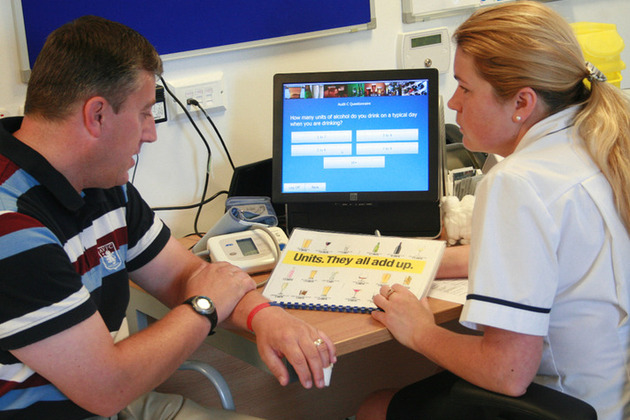Tackling food poverty on a local and national level

Food poverty, or insecurity, is a personal tragedy for many people. More than 350,000 people had to turn to emergency food banks between April and September this year, according to...

Professor Fenton is a senior public health expert and infectious disease epidemiologist, who has worked in a variety of public health executive leadership roles across government and academia in the UK and internationally, including taking a leading role in London’s response to the COVID-19 pandemic. He was awarded a CBE in the 2022 New Year honours list for services to public health.
Professor Fenton became the Regional Director for London in the Office for Health Improvement and Disparities (OHID) within the Department of Health and Social Care (DHSC) in October 2021, having previously held the same position within Public Health England from April 2020 until its functions transferred to OHID. Within this role, he is also the statutory public health advisor to the Mayor of London and the Greater London Authority and the Regional Director of Public Health for NHS London. He provides leadership across London for health and wellbeing, prevention of ill health, health protection and reduction of health inequalities.
Professor Fenton has recently been elected to be the next President of the UK Faculty of Public Health and is due to take up the position in June 2022. In December 2021, Professor Fenton was appointed Chief Advisor on HIV to Government and Chair of the HIV Action Plan Implementation Steering Group to oversee the delivery of the new HIV strategy for England.
In November 2020, Professor Fenton was named by Powerlist as the second most influential black person in Britain for his work leading the fight against coronavirus and his public health leadership on tackling inequalities. In Spring 2020, he oversaw the national PHE review of disparities in risks and outcomes of COVID-19, published as the ground-breaking ‘Beyond the Data’ report. The review led to recommendations which have shaped a more equitable COVID-19 pandemic response, both nationally and locally.
Professor Fenton previously held a joint position as Strategic Director of Place and Wellbeing and Director of Public Health at London Borough of Southwark. In this role he led the council’s planning, regeneration, community engagement and public health portfolios driving inclusive regeneration, digital public health, asset-based community development and working in partnership with the NHS to promote health in all policies.
From 2012-2017, Kevin was PHE’s National Director for Health and Wellbeing, leading national prevention programmes including screening for cancer, NHS Health Checks, obesity, mental health, e-cigarettes and tobacco harm reduction, HIV, sexual and reproductive health. He established and led PHE's Health Equity programme, focused on addressing the social determinants of health and promoting place-based approaches to health improvement.
Between 2005-2012, Professor Fenton was the Director of the National Centre for HIV/AIDS, Viral Hepatitis, STD, and TB Prevention (NCHHSTP), within the Centres for Disease Control and Prevention (CDC) in America. He also served as chief of CDC’s National Syphilis Elimination Effort, having worked in research, epidemiology, and the prevention of HIV and other STDs since 1995. Between 2000 and 2004, he was Director of the HIV and STI Department in the United Kingdom’s Health Protection Agency and Senior Lecturer in HIV and STI epidemiology and control at University College London.

Food poverty, or insecurity, is a personal tragedy for many people. More than 350,000 people had to turn to emergency food banks between April and September this year, according to...

...cheaper today than it has ever been when compared to our earnings and how much money we have for luxury items. Alcohol consumption has levelled off in the past few...

...lasting recovery? Where are we in terms of achieving our recovery ambition for people in drug treatment? And, in the context of the statistics released today, what can local authorities...

...services. So for instance, in Plymouth and Somerset there is work underway to understand how the NHS Health Check can reach people who may have relatively little contact with primary...
...illness can harm – especially the more disadvantaged communities. A recent report described how the system was letting down people with serious mental illness by not focusing enough on their...
Everyone remembers those iconic public health adverts – the ‘fatty cigarette’ or HIV tombstone TV ads for example. But there is a lot more to health marketing than memorable and...